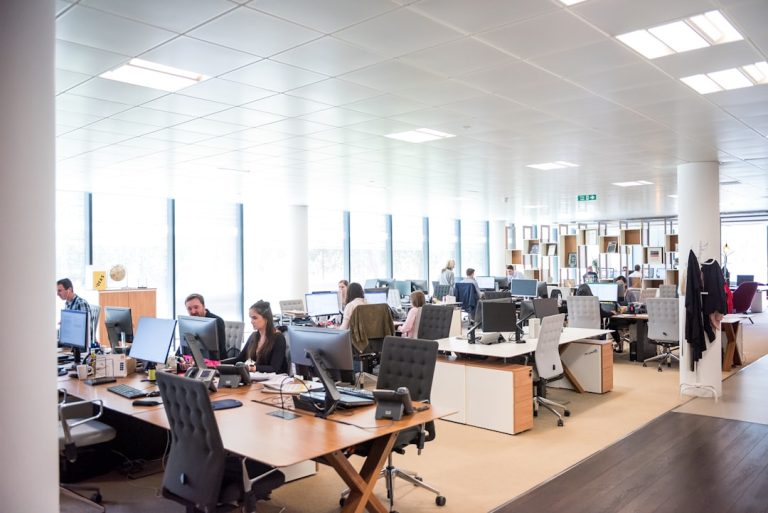
Janitors and cleaners play a crucial role in maintaining the functionality and aesthetics of various environments across the United States. Their work often goes unnoticed, yet it is foundational to the operation of schools, hospitals, offices, and public spaces. These professionals are responsible for ensuring that facilities are clean, safe, and welcoming.
In a country where cleanliness is often equated with professionalism and care, the contributions of janitors and cleaners cannot be overstated. They are the unsung heroes who work behind the scenes, often during off-hours, to ensure that spaces are ready for use when the public arrives. The importance of janitors and cleaners extends beyond mere aesthetics; it encompasses the overall well-being of communities.
A clean environment fosters a sense of pride and ownership among residents and employees alike. In workplaces, cleanliness can significantly impact employee morale and productivity. Studies have shown that a tidy workspace can lead to increased focus and efficiency, while a cluttered or dirty environment can have the opposite effect.
Thus, janitors and cleaners are not just custodians of physical spaces; they are integral to creating environments that promote health, productivity, and community spirit.
Key Takeaways
- Janitors and cleaners play a crucial role in maintaining cleanliness and hygiene in public spaces, contributing to the overall well-being of the community.
- Their work directly impacts public health by preventing the spread of diseases and creating safe environments for people to live and work in.
- Janitors and cleaners face challenges such as exposure to hazardous chemicals, heavy physical labor, and low wages, highlighting the need for better working conditions and support.
- Their impact on the environment can be significant, and efforts to promote sustainable cleaning practices can lead to a more eco-friendly industry.
- Training and skills in cleaning techniques, safety protocols, and customer service are essential for janitors and cleaners to excel in their roles and provide quality service.
The Role of Janitors and Cleaners in Public Health
The role of janitors and cleaners in public health is paramount, especially in light of recent global health crises such as the COVID-19 pandemic. These professionals are on the front lines of infection control, employing rigorous cleaning protocols to minimize the spread of pathogens in public spaces. Their responsibilities include disinfecting high-touch surfaces, managing waste disposal, and ensuring that restrooms and common areas are sanitized regularly.
This work is essential in preventing outbreaks of illnesses, thereby protecting not only individual health but also community health at large. Moreover, the cleaning practices employed by janitors and cleaners have evolved significantly over the years. The introduction of advanced cleaning technologies and eco-friendly products has transformed traditional cleaning methods into more effective public health strategies.
For instance, the use of electrostatic sprayers allows for thorough disinfection of surfaces that may be difficult to reach with conventional cleaning methods. Additionally, many cleaning companies now prioritize green cleaning products that reduce harmful chemical exposure for both workers and building occupants. This shift not only enhances public health but also aligns with growing environmental consciousness among consumers.
The Challenges Faced by Janitors and Cleaners

Despite their critical role, janitors and cleaners face numerous challenges in their daily work. One significant issue is job insecurity, as many positions in this field are part-time or temporary. This precarious employment situation can lead to financial instability for workers who rely on these jobs to support their families.
Furthermore, the nature of janitorial work often involves physically demanding tasks that can lead to injuries over time. Repetitive motions, heavy lifting, and exposure to harsh cleaning chemicals can take a toll on workers’ health, making it imperative for employers to prioritize safety training and ergonomic practices. Another challenge is the lack of recognition and respect for the profession.
Many people view janitorial work as low-skilled labor, which can lead to stigmatization and undervaluation of the essential services provided by these workers. This perception can affect job satisfaction and motivation among janitors and cleaners. Additionally, the industry often lacks adequate representation in discussions about labor rights and workplace conditions.
Advocacy for better wages, benefits, and working conditions is crucial to improving the lives of those in this profession.
The Impact of Janitors and Cleaners on the Environment
| Metrics | Impact |
|---|---|
| Chemical Usage | Use of cleaning chemicals can contribute to air and water pollution |
| Energy Consumption | Electricity and water usage for cleaning processes can have an environmental impact |
| Waste Generation | Disposal of cleaning waste can contribute to landfill and pollution |
| Green Cleaning Practices | Adoption of eco-friendly cleaning products and methods can reduce environmental impact |
Janitors and cleaners have a significant impact on the environment through their choice of cleaning products and methods. Traditional cleaning agents often contain harmful chemicals that can contribute to air pollution and water contamination. However, there has been a growing trend towards sustainable cleaning practices that prioritize environmental health.
Many cleaning companies are now adopting green cleaning protocols that utilize biodegradable products, reduce water usage, and minimize waste generation. The shift towards environmentally friendly practices not only benefits the planet but also enhances indoor air quality for building occupants. Poor indoor air quality can lead to a range of health issues, including respiratory problems and allergies.
By using non-toxic cleaning agents and implementing effective ventilation strategies, janitors and cleaners can create healthier environments for everyone. Furthermore, some organizations are beginning to recognize the importance of sustainability in their operations, leading to increased demand for eco-conscious cleaning services.
The Training and Skills Required for Janitors and Cleaners
Training and skill development are essential components of a successful career in janitorial services. While many entry-level positions may not require formal education, ongoing training is crucial for ensuring that workers are equipped with the knowledge necessary to perform their duties effectively and safely. Training programs often cover topics such as proper cleaning techniques, chemical safety, equipment operation, and customer service skills.
This education not only enhances job performance but also contributes to career advancement opportunities within the industry. In addition to technical skills, soft skills play a vital role in the effectiveness of janitors and cleaners. Communication skills are essential for interacting with clients, coworkers, and building occupants.
Time management is also critical, as janitors must efficiently complete their tasks within designated time frames while maintaining high standards of cleanliness. Attention to detail is another important skill; even minor oversights can lead to larger issues in cleanliness or safety. As the industry continues to evolve with new technologies and practices, ongoing professional development will be key to ensuring that janitors and cleaners remain competitive in the workforce.
The Diversity and Inclusivity in the Janitorial and Cleaning Industry

The janitorial and cleaning industry is characterized by its diversity, with workers from various backgrounds contributing to this essential field. This diversity enriches the workplace by bringing together different perspectives, experiences, and skills. Many immigrants find employment in this sector as it often provides accessible job opportunities without stringent educational requirements.
This inclusivity not only supports economic stability for individuals but also fosters a sense of community among workers. However, despite this diversity, challenges remain regarding equity within the industry. Many workers face barriers related to language proficiency, access to training resources, and opportunities for advancement.
Initiatives such as mentorship programs, language training classes, and pathways for career advancement can help empower workers from diverse backgrounds to thrive in their roles.
The Future of Janitorial and Cleaning Occupations in the USA
The future of janitorial and cleaning occupations in the USA is poised for transformation as technology continues to advance. Automation is beginning to play a role in this field; robotic cleaners are being introduced in various settings such as airports, shopping malls, and large office buildings. These machines can perform routine tasks like floor scrubbing or vacuuming with efficiency that complements human labor rather than replacing it entirely.
As technology evolves, it will be essential for workers to adapt by acquiring new skills related to operating advanced equipment. Additionally, there is an increasing emphasis on sustainability within the industry that will shape its future trajectory. As more organizations commit to environmentally responsible practices, demand for green cleaning services will likely rise.
This shift presents an opportunity for janitorial companies to differentiate themselves by adopting eco-friendly products and practices while also appealing to environmentally conscious consumers. The integration of technology with sustainable practices could lead to innovative solutions that enhance both efficiency and environmental stewardship.
The Recognition and Appreciation of Janitors and Cleaners
Recognizing and appreciating the contributions of janitors and cleaners is vital for fostering respect within this profession. Public acknowledgment can take many forms—from simple gestures like thank-you notes or verbal appreciation from supervisors to more formal recognition programs that highlight outstanding performance within teams. Celebrating National Cleaning Week or similar initiatives can also serve as platforms for raising awareness about the importance of these roles in society.
Moreover, advocacy for better working conditions and fair wages is an essential aspect of recognizing the value of janitorial work. Labor unions have played a significant role in fighting for workers’ rights within this industry, pushing for improved pay scales, benefits packages, and job security measures. By elevating the conversation around these issues, society can begin to shift perceptions about janitorial work from undervalued labor to an essential service that deserves respect and recognition commensurate with its importance in maintaining public health and safety.
Janitors and cleaners play a crucial role in maintaining cleanliness and order in various establishments across the USA. They are responsible for ensuring that spaces are sanitized and presentable for employees, customers, and visitors. For more information on other occupations in the USA, you can check out this link to explore a wide range of career options available.
FAQs
What are the main responsibilities of janitors and cleaners in the USA?
Janitors and cleaners in the USA are responsible for maintaining the cleanliness and order of buildings, such as offices, schools, hospitals, and residential complexes. Their duties may include sweeping, mopping, vacuuming, dusting, and emptying trash receptacles.
What are the typical work environments for janitors and cleaners in the USA?
Janitors and cleaners in the USA work in a variety of settings, including office buildings, schools, hospitals, hotels, and residential buildings. They may also work outdoors, maintaining the cleanliness of parks and public spaces.
What are the educational requirements for becoming a janitor or cleaner in the USA?
There are no formal educational requirements for becoming a janitor or cleaner in the USA. However, some employers may prefer candidates with a high school diploma or equivalent.
What is the average salary for janitors and cleaners in the USA?
According to the U.S. Bureau of Labor Statistics, the median annual wage for janitors and cleaners was $29,080 in May 2020. The lowest 10 percent earned less than $20,000, and the highest 10 percent earned more than $44,590.
What are the job outlook and opportunities for janitors and cleaners in the USA?
The job outlook for janitors and cleaners in the USA is expected to be favorable, with employment projected to grow 7 percent from 2020 to 2030, faster than the average for all occupations. This growth is attributed to the need for cleaning services in a variety of settings.






